Also Says, ‘We Wanted One Candidate to Win’ in ’16
Philly Inquirer Editorials Warn of ‘The Trump Threat’
Homepage photo: NPR building in Washington (Credit: Capitol Construction)
Support Journal-isms
Donations are tax-deductible.

The NPR newsroom in 2019 (Credit: Stephen Voss/NPR)
Also Says, ‘We Wanted One Candidate to Win’ in ’16
 Uri Berliner (pictured), the NPR editor who publicly argued a week ago that the network had ‘lost America’s trust’ by approaching news stories with a rigidly progressive mindset,” including racial diversity initiatives in his critique, resigned Wednesday.
Uri Berliner (pictured), the NPR editor who publicly argued a week ago that the network had ‘lost America’s trust’ by approaching news stories with a rigidly progressive mindset,” including racial diversity initiatives in his critique, resigned Wednesday.
“I cannot work in a newsroom where I am disparaged by a new CEO whose divisive views confirm the very problems at NPR I cite in my Free Press essay,” Berliner wrote.
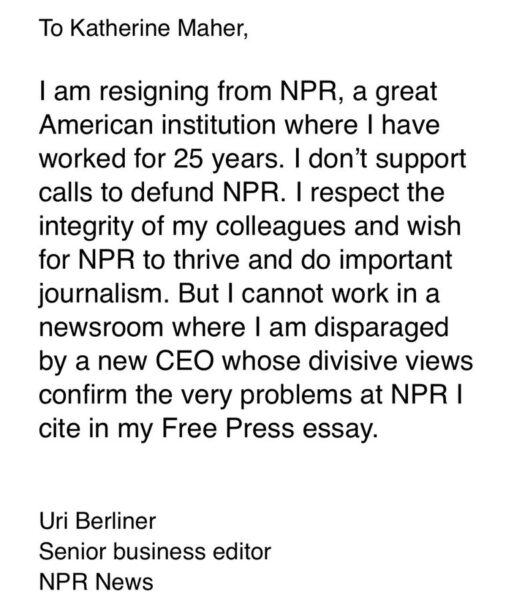
The statement was apparently a reference to CEO NPR President and CEO Katherine Maher’s response to Berliner’s essay, published April 9 in the online news site The Free Press.
 Maher (pictured) noted April 12 that while she welcomes questions about whether the organization is properly serving its audience, “Questioning whether our people are serving our mission with integrity, based on little more than the recognition of their identity, is profoundly disrespectful, hurtful, and demeaning.”
Maher (pictured) noted April 12 that while she welcomes questions about whether the organization is properly serving its audience, “Questioning whether our people are serving our mission with integrity, based on little more than the recognition of their identity, is profoundly disrespectful, hurtful, and demeaning.”
Among other points, she said, “It is deeply simplistic to assert that the diversity of America can be reduced to any particular set of beliefs, and faulty reasoning to infer that identity is determinative of one’s thoughts or political leanings. Each of our colleagues are here because they are excellent, accomplished professionals with an intense commitment to our work: we are stronger because of the work we do together, and we owe each other our utmost respect. We fulfill our mission best when we look and sound like the country we serve.”
An NPR spokeswoman, Isabel Lara, said in a statement that Maher “was not working in journalism at the time and was exercising her First Amendment right to express herself like any other American citizen,” Benajmin Mullin reported for The New York Times.
NPR also said that Maher had upheld the network’s code of ethics since she was appointed.
The Wednesday morning disclosure of Berliner’s resignation, by NPR media reporter David Folkenflik on X, followed by less than three hours a message from Berliner to his NPR colleagues saying he never questioned their integrity but that he had raised his issues after the 2016 presidential election, when “We wanted one candidate to win. We could not fathom the prospect of the other one as president. And that, I believe, is a problem.”
However, that message did not address Trump’s attacks on the media and his characterizations of its members as “enemies of the people,” vowing to make their professional lives more difficult.
Berliner wrote:
“To my respected colleagues — whose integrity I have never questioned:
“Many are unaware of how long I have tried to raise these issues from within. This is what I sent to NPR news leaders on November 11, 2016 – three days after Donald Trump was elected president. That’s more than seven years.
“As we pursue Mark Zuckerberg for answers about social media’s impact on the election, may I make a suggestion: This seems like the right time to reflect on our own purpose here as NPR journalists in our wounded, divided country. I agree with the congratulatory notes from senior managers that we covered the campaign and election with insight, grace and dedication. And yet…deep in the heart of this institution is this: We share common outlooks. We wanted one candidate to win. We could not fathom the prospect of the other one as president. And that, I believe, is a problem.
“You may say that I’m wrong. But the expressions of dismay and shock throughout NPR on Wednesday morning tell me otherwise. I say this with some urgency as the country hardens into two tribes – tribes that don’t connect or engage except to demean the other. Primarily for the sake of our journalism, we can’t align ourselves with a tribe. So we don’t exist in a cocoon that blinds us to the views and experience of tens of millions of our fellow citizens.
“I say this while accepting some blame myself. For I think those of us covering the economy often extol the overall benefits of trade and globalization without truly understanding the harm it causes to certain individuals and communities. Perhaps we can start exploring other blind spots together as a network. Maybe we should spend a lot more time outside of our comfort zone of coastal cities and college towns.
“But more important than any particular blind spot — let me make the case for more humility in our work. We’re not as smart as we think we are. We should do better. That imperative is expressed here in a column by the head of CBS News Digital political coverage. He’s making the case better than I am here. You may not agree with much or any of what he’s saying. But I’m sure you would agree that more humility is a good place to start.”
While many would agree that news organizations should report on the whole of America, including Trump supporter, journalists who oppose Trump might be acting in their own self-interest.
Last year, the Communications Workers of America, the nation’s largest communications and media union, endorsed President Biden and Vice President Harris for re-election. Although the union includes journalists, as members of the News Guild, CWA made the endorsement because the journalists are also workers. “Joe Biden respects who we are, what we think, and is absolutely committed to doing everything he can to support the labor movement. And we’re going to do everything we can to support him,” the union said.
Some journalists maintain that their union’s endorsements are inappropriate because it makes them appear partial, but Trump does not disguise his hostility toward their profession.
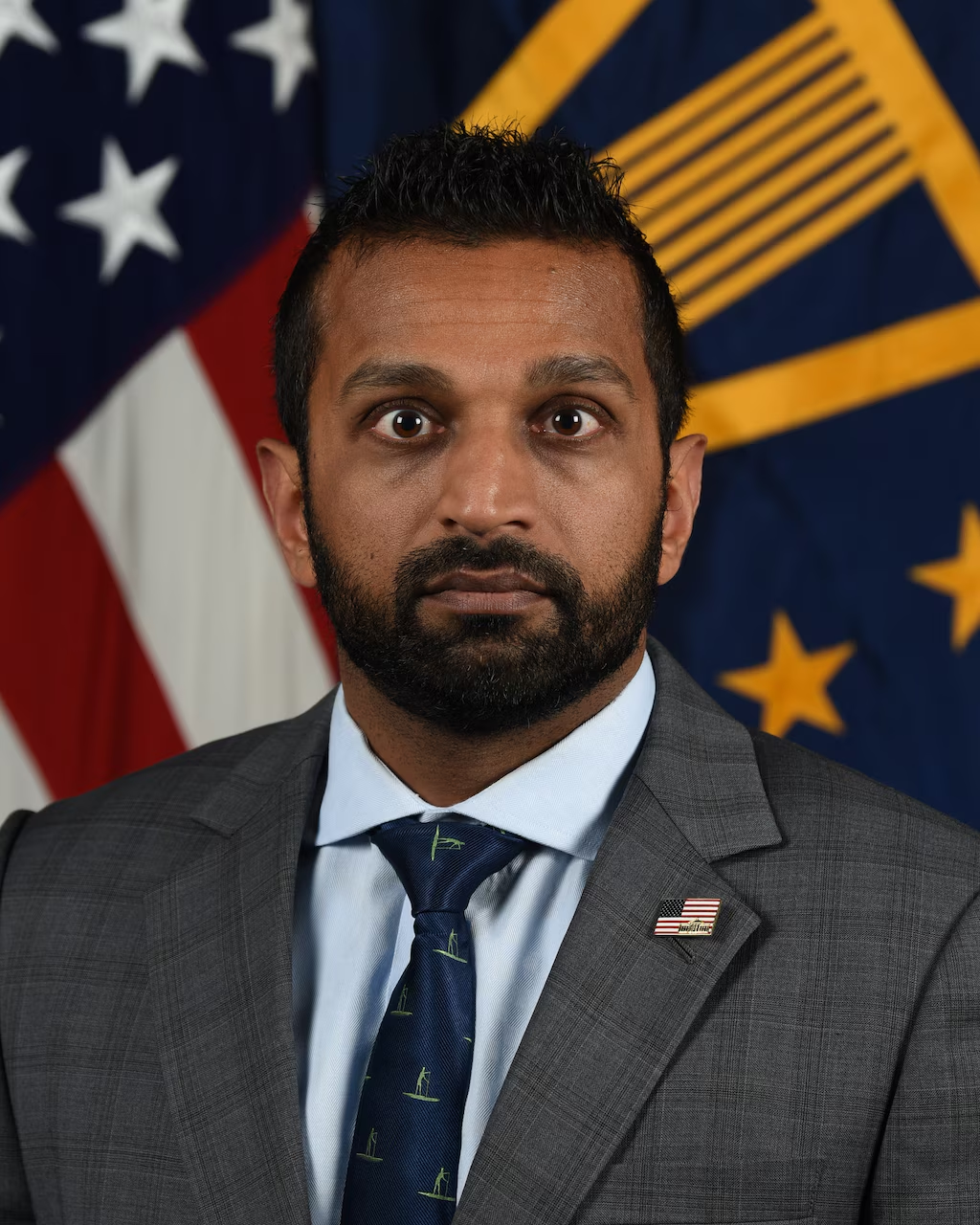 Michelle L. Price reported Dec. 5 for the Associated Press that Kash Patel (pictured), a Trump ally who worked in his Justice Department, said that if the former president is elected again, his administration will retaliate against people in the media “criminally or civilly.”
Michelle L. Price reported Dec. 5 for the Associated Press that Kash Patel (pictured), a Trump ally who worked in his Justice Department, said that if the former president is elected again, his administration will retaliate against people in the media “criminally or civilly.”
In an interview with Steve Bannon for a podcast, Patel, who was also chief of staff in the Defense Department and held a role on the National Security Council, said that in a second Trump administration, “We will go out and find the conspirators not just in government, but in the media,” over the 2020 election, which Trump lost to Biden.
Patel has been touted by Donald Trump Jr. as a possible acting attorney general should Trump return to the White House.
Patel said: “We’re going to come after the people in the media who lied about American citizens who helped Joe Biden rig presidential elections. We’re going to come after you, whether it’s criminally or civilly. We’ll figure that out. But yeah, we’re putting you all on notice.”
Price continued, “Trump has long targeted the media, labeling news organizations as ‘Fake News’ and the ‘Enemy of the People,’ a phrase linked to Soviet dictator Josef Stalin.
“In a post on his Truth Social network in September, Trump repeated both phrases and vowed to investigate NBC News and MSNBC for ‘Country Threatening Treason’ and try to curb their access to the airwaves.
“ ‘I say up front, openly, and proudly, that when I WIN the Presidency of the United States, they and others of the LameStream Media will be thoroughly scrutinized for their knowingly dishonest and corrupt coverage of people, things, and events,’ Trump said in the post. ‘Why should NBC, or any other of the corrupt & dishonest media companies, be entitled to use the very valuable Airwaves of the USA, FREE? They are a true threat to Democracy and are, in fact, THE ENEMY OF THE PEOPLE! The Fake News Media should pay a big price for what they have done to our once great Country.’ ”
Philly Inquirer Editorials Warn of ‘The Trump Threat’
For those who argue that the news media ought to be more open about the threat to democracy that a second Donald Trump term poses, the opinion pages of the Philadelphia Inquirer offer a response.
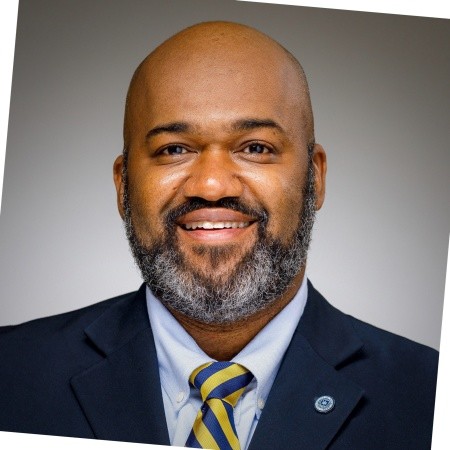 “The Inquirer Editorial Board is sounding the alarm that Donald Trump is a danger to our democracy,” the Inquirer wrote April 5.
“The Inquirer Editorial Board is sounding the alarm that Donald Trump is a danger to our democracy,” the Inquirer wrote April 5.
“In a series of editorials, the Board details the twice-impeached former president’s flaws, outlines his misdeeds — and highlights the risks of a second term.”
The headlines: “Donald Trump is a Clear and Present Danger.” “Donald Trump fails the test of accountability.” “Donald Trump’s Russia Ties Remain a National Security Risk.“
“A Trump Win Would Usher in an American Theocracy Centered on Destroying Reproductive Rights.” “Racism, bias, and xenophobia: How Trump’s bigoted views foster division and abase the presidency.”
“The people who know Trump best have spoken: He is unfit to lead.” “Donald Trump has cheated his way through life. Will this election be any different?“
“We’ve received more negative emails overall, but letters to the editor have been mixed but overall positive, with readers doing everything from thanking us for doing this to saying we’re not doing enough,” Richard G. Jones (pictured, above), managing editor for opinion, messaged Journal-isms.
“Because Pennsylvania is likely to play a pivotal role in November, we feel that this series is especially relevant for our readers. And the board has worked hard to make it clear with these pieces that with the stakes so high in the election, this is an all hands on deck moment in which everyone who opposes Trumpism must pull together to push back against the prospect of a second term.”
NPR Suspends Editor Critical of DEI Moves
April 16, 2024
Right Wing Praised Broadside Against Network
Homepage illustration credit: NPR
Support Journal-isms
Donations are tax-deductible.
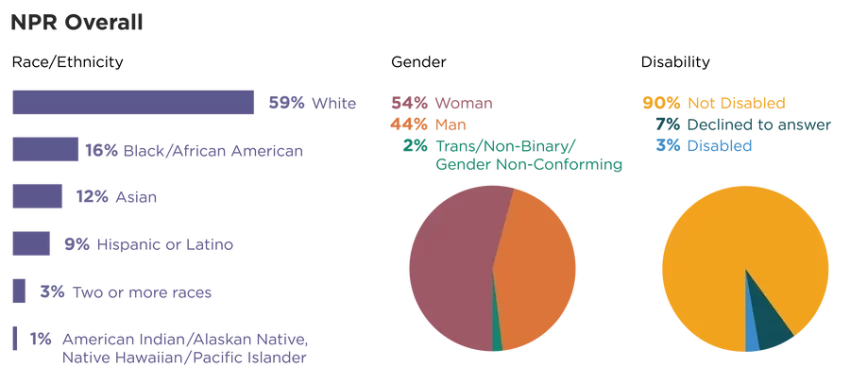
Credit: NPR
Right Wing Praised Broadside Against Network
“NPR has formally punished Uri Berliner, the senior editor who publicly argued a week ago that the network had ‘lost America’s trust’ by approaching news stories with a rigidly progressive mindset,” David Folkenflik reported Tuesday for NPR. That “progressive mindset” advanced initiatives to advance racial diversity.
“Berliner’s five-day suspension without pay, which began last Friday, has not been previously reported.
“Yet the public radio network is grappling in other ways with the fallout from Berliner’s essay for the online news site The Free Press. It angered many of his colleagues, led NPR leaders to announce monthly internal reviews of the network’s coverage, and gave fresh ammunition to conservative and partisan Republican critics of NPR, including former President Donald Trump. . . .
“In presenting Berliner’s suspension Thursday afternoon, the organization told the editor he had failed to secure its approval for outside work for other news outlets, as is required of NPR journalists. It called the letter a ‘final warning,’ saying Berliner would be fired if he violated NPR’s policy again. Berliner is a dues-paying member of NPR’s newsroom union but says he is not appealing the punishment. . . .”
 Under the headline “I’ve Been at NPR for 25 Years. Here’s How We Lost America’s Trust,” Berliner (pictured) wrote April 9, “Today, those who listen to NPR or read its coverage online find . . . the distilled worldview of a very small segment of the U.S. population.” Part of Berliner’s evidence that NPR has lost its way: “Race and identity became paramount in nearly every aspect of the workplace.” He labeled “the most damaging development at NPR: the absence of viewpoint diversity.”
Under the headline “I’ve Been at NPR for 25 Years. Here’s How We Lost America’s Trust,” Berliner (pictured) wrote April 9, “Today, those who listen to NPR or read its coverage online find . . . the distilled worldview of a very small segment of the U.S. population.” Part of Berliner’s evidence that NPR has lost its way: “Race and identity became paramount in nearly every aspect of the workplace.” He labeled “the most damaging development at NPR: the absence of viewpoint diversity.”
Although Berliner’s arguments have been embraced by MAGA Republicans and the like-minded, including the editorial page of the Chicago Tribune, the pushback from others has been strong. Journalists who fact-checked Berliner’s piece found it misleading.
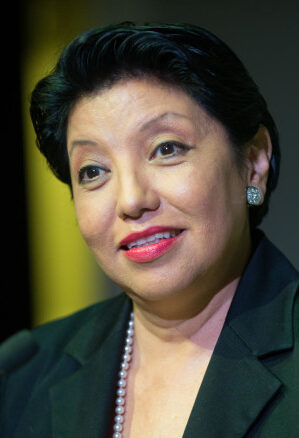 Some were more blunt than others. Rebecca Aguilar (pictured), freelance broadcast journalist, founder of Latinas in Journalism and former president of the Society of Professional Journalists, wrote on social media, “I’ve been a reporter for 42 years, and during that time, I have seen many like Uri Berliner. The insecure white guy who claims they want ‘a diverse viewpoint,’ but it’s bullshit. We #POC have diverse viewpoints. Reality check. It’s 2024, not 1924. Next.. .”
Some were more blunt than others. Rebecca Aguilar (pictured), freelance broadcast journalist, founder of Latinas in Journalism and former president of the Society of Professional Journalists, wrote on social media, “I’ve been a reporter for 42 years, and during that time, I have seen many like Uri Berliner. The insecure white guy who claims they want ‘a diverse viewpoint,’ but it’s bullshit. We #POC have diverse viewpoints. Reality check. It’s 2024, not 1924. Next.. .”
Berliner’s piece was published as the movement against diversity, equity and inclusion spreads across red states and, perhaps ironically, targets a media institution that had been viewed as problematic on diversity for many years — as recently as 2014, the National Association of Black Journalists gave the network its “Thumbs Down Award.”
Recently, however, NPR has been aggressive on the subject.
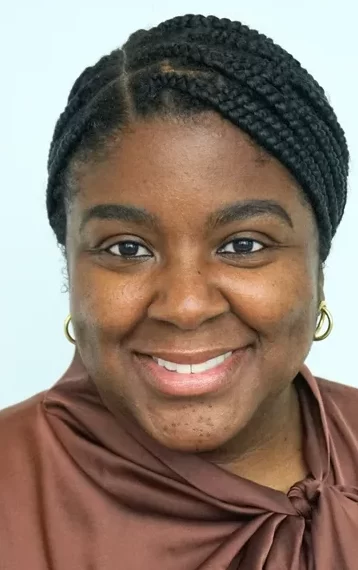 In 2009, NPR hired Keith Woods from the Poynter Institute “to lead the organization’s diversity strategy” and since then he “has worked with the newsroom on a multi-year effort to increase the diversity of sources.” Woods is now NPR’s chief diversity officer, and in September, NPR promoted Whitney Maddox (pictured) to vice president, diversity, equity & inclusion.
In 2009, NPR hired Keith Woods from the Poynter Institute “to lead the organization’s diversity strategy” and since then he “has worked with the newsroom on a multi-year effort to increase the diversity of sources.” Woods is now NPR’s chief diversity officer, and in September, NPR promoted Whitney Maddox (pictured) to vice president, diversity, equity & inclusion.
“In this talk, speakers Surya Mudiya, and Codesmith Alum Samantha Wessel dive into the creation of NPR’s tracking tool, Dex,” NPR said. “Dex is attached to NPR’s content management system which allows journalists to monitor their source diversity with the goal of having their stories and shows accurately reflect its audience.” (Credit: YouTube)
Under former CEO John Lansing, NPR made increasing diversity, both of its staff and its audience, its “North Star” mission. Four out of 10 staffers are people of color; nearly half of NPR’s leadership team identifies as Black, Asian or Latino, Folkenflik reported April 9.
 Berliner says in his essay that NPR failed to consider broader diversity of viewpoints. However, NPR’s president/CEO Katherine Maher (pictured) responded, “It is deeply simplistic to assert that the diversity of America can be reduced to any particular set of beliefs, and faulty reasoning to infer that identity is determinative of one’s thoughts or political leanings.”
Berliner says in his essay that NPR failed to consider broader diversity of viewpoints. However, NPR’s president/CEO Katherine Maher (pictured) responded, “It is deeply simplistic to assert that the diversity of America can be reduced to any particular set of beliefs, and faulty reasoning to infer that identity is determinative of one’s thoughts or political leanings.”
Some media writers reporting on Berliner’s essay focused on a larger point. The piece “did validate a number of complaints the right has had about NPR and the press at large,” Oliver Darcy wrote Thursday for CNN. “Berliner ridiculed the outlet’s coverage of ‘Russiagate,’ the Covid-19 lab-leak theory, and the New York Post’s Hunter Biden story. And he used his complaints about how those individual stories were covered by his colleagues to draw a sweeping conclusion. NPR, he asserted, had ‘lost America’s trust’ by embracing a ‘progressive worldview,’ rejecting ‘viewpoint diversity,’ and ‘telling listeners how to think.’ “
“The arguments he raises — and counters — have percolated across U.S. newsrooms in recent years,” Folkenflik wrote April 9. “The #MeToo sexual harassment scandals of 2016 and 2017 forced newsrooms to listen to and heed more junior colleagues. The social justice movement prompted by the killing of George Floyd in 2020 inspired a reckoning in many places. Newsroom leaders often appeared to stand on shaky ground.”
But others narrowed the focus.
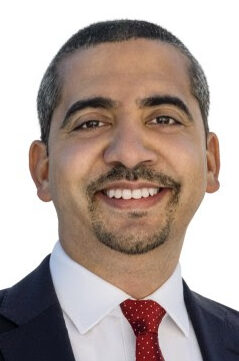 Journalist Mehdi Hasan, formerly of MSNBC (pictured) and now launching his own media company, tweeted, “This essay has it backwards: you can’t blame NPR for conservatives not listening. You have to ask why conservatives have gone down conspiracy holes (climate change, 2020 election, vaccines) & how on earth mainstream media is supposed to cater to them now?”
Journalist Mehdi Hasan, formerly of MSNBC (pictured) and now launching his own media company, tweeted, “This essay has it backwards: you can’t blame NPR for conservatives not listening. You have to ask why conservatives have gone down conspiracy holes (climate change, 2020 election, vaccines) & how on earth mainstream media is supposed to cater to them now?”
NPR’s media critic, Eric Deggans, tweeted, “Many things wrong w/terrible Berliner column on NPR, including not observing basic fairness. Didn’t seek comment from NPR before publishing. Didn’t mention many things which could detract from his conclusions. Set up staffers of color as scapegoats.”
 Fernando Alfonso (pictured), a senior supervising editor for digital news, told Folkenflik, “As a person of color who has often worked in newsrooms with little to no people who look like me, the efforts NPR has made to diversify its workforce and its sources are unique and appropriate given the news industry’s long-standing lack of diversity. These efforts should be celebrated and not denigrated as Uri has done.”
Fernando Alfonso (pictured), a senior supervising editor for digital news, told Folkenflik, “As a person of color who has often worked in newsrooms with little to no people who look like me, the efforts NPR has made to diversify its workforce and its sources are unique and appropriate given the news industry’s long-standing lack of diversity. These efforts should be celebrated and not denigrated as Uri has done.”
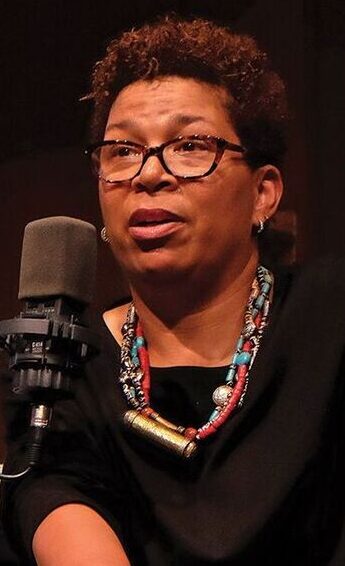 In Tuesday’s story, Folkenflik says “Morning Edition” host Michel Martin (pictured) told him “that some colleagues at the network share Berliner’s concerns that coverage is frequently presented through an ideological or idealistic prism that can alienate listeners.
In Tuesday’s story, Folkenflik says “Morning Edition” host Michel Martin (pictured) told him “that some colleagues at the network share Berliner’s concerns that coverage is frequently presented through an ideological or idealistic prism that can alienate listeners.
” ‘The way to address that is through training and mentorship,’ says Martin, herself a veteran of nearly two decades at the network who has also reported for The Wall Street Journal and ABC News. ‘It’s not by blowing the place up, by trashing your colleagues, in full view of people who don’t really care about it anyway.’ “
 At “Code Switch,” the podcast, website and race reporting project NPR launched in 2013 with a $1.5 million grant from the Corporation for Public Broadcasting, Leah Donnella (pictured) wrote Friday, “In the piece, the author argued that in the aftermath of George Floyd’s murder in 2020, ‘[I]t would have been an ideal moment to tackle a difficult question: Is America, as progressive activists claim, beset by systemic racism in the 2020s — in law enforcement, education, housing, and elsewhere?’
At “Code Switch,” the podcast, website and race reporting project NPR launched in 2013 with a $1.5 million grant from the Corporation for Public Broadcasting, Leah Donnella (pictured) wrote Friday, “In the piece, the author argued that in the aftermath of George Floyd’s murder in 2020, ‘[I]t would have been an ideal moment to tackle a difficult question: Is America, as progressive activists claim, beset by systemic racism in the 2020s — in law enforcement, education, housing, and elsewhere?’
“Here’s the thing. One of the tried-and-true tactics in the racism playbook is to relitigate a question that’s been answered ad nauseam. It’s why public figures sometimes think they can get away with posing ‘daring’ questions like, Wasn’t slavery actually kind of beneficial? Or, Could Black people be getting COVID at high rates because they’re kind of unsanitary? Or, Are Mexican immigrants actually criminals and rapists? (What?? Aren’t we allowed to ask honest questions??).
“In regard to the question posed by the essay: We know that systemic racism exists. In law enforcement. In education. In housing. In healthcare. In hiring. In government and environmental policy. Oh yeah, and in journalism. NPR has reported in depth on every single one of these topics. That reporting existed long before 2020. Anyone who, in good faith, wanted to know if systemic racism was real would have decades of resources to turn to, both within NPR’s archives and in the vast library of human knowledge.
“But that’s rarely the point of re-asking the question. The point is to cast doubt where there is none. And it’s not just a tactic used for issues of race. It’s one used by climate change deniers and anti-vaxxers. People who want to pretend that smoking isn’t deadly. Election deniers, too.
“And, as I’ve quoted here before, the great Toni Morrison once said that ‘the very serious function of racism is distraction.’ Lots of brilliant, capable people wind up wasting their time trying to prove that racism is real instead of, you know, solving the climate crisis.
“So, some humble advice from someone who’s spent the last 15 years studying the dynamics of racism: Don’t get thrown off by the smoke and mirrors. Instead, when someone says they’re ‘just asking questions,’ think long and hard about whether those questions ever needed answering to begin with.”
- Winston Cho, Hollywood Reporter: Producer Sues Al Roker Over DEI Policy Failures
- Sara Guaglione, Digiday: Publishers’ efforts to diversify their workforces slows in 2023, but heads of DEI point to progress (Dec. 26)
- Steve Inskeep, Substack: How my NPR colleague failed at “viewpoint diversity”
- Dominick Mastrangelo, The Hill: Top NPR editors ‘strongly disagree’ with network veteran’s take on quality of journalism
- Alicia Montgomery, Slate: The Real Story Behind NPR’s Current Problems
- Benjamin Mullin and Katie Robertson, New York Times: NPR in Turmoil After It Is Accused of Liberal Bias
- NPR: Our Ongoing Work
- Chiris Quinn, cleveland.com: Is this a proper use of your Ohio taxes? I’ve never seen anything like it: Letter from the Editor (Nov. 4)
- Chris Quinn, cleveland.com: We’re asking for some personal information, but it’s for a good cause: Letter from the Editor (Oct. 14)
Richard Prince’s Journal-isms originates from Washington. It began in print before most of us knew what the internet was, and it would like to be referred to as a “column.” Any views expressed in the column are those of the person or organization quoted and not those of any other entity. Send tips, comments and concerns to Richard Prince at journal-isms+owner@
View previous columns (after Feb. 13, 2016).
View previous columns (before Feb. 13, 2016)
- Diversity’s Greatest Hits, 2018 (Jan. 4, 2019)
- Book Notes: Is Taking a Knee Really All That? (Dec. 20, 2018)
- Book Notes: Challenging ’45’ and Proudly Telling the Story (Dec. 18, 2018)
- Book Notes: Get Down With the Legends! (Dec. 11, 2018)
- Journalist Richard Prince w/Joe Madison (Sirius XM, April 18, 2018) (podcast)
- Richard Prince (journalist) (Wikipedia entry)
- February 2018 Podcast: Richard “Dick” Prince on the need for newsroom diversity (Gabriel Greschler, Student Press Law Center, Feb. 26, 2018)
- Diversity’s Greatest Hits, 2017 — Where Will They Take Us in the Year Ahead?
- Book Notes: Best Sellers, Uncovered Treasures, Overlooked History (Dec. 19, 2017)
- An advocate for diversity in the media is still pressing for representation, (Courtland Milloy, Washington Post, Nov. 28, 2017)
- Morgan Global Journalism Review: Journal-isms Journeys On (Aug. 31, 2017)
- Diversity’s Greatest Hits, 2016
- Book Notes: 16 Writers Dish About ‘Chelle,’ the First Lady
- Book Notes: From Coretta to Barack, and in Search of the Godfather
- Journal-isms’ Richard Prince Wants Your Ideas (FishbowlDC, Feb. 26, 2016)
- “JOURNAL-ISMS” IS LATEST TO BEAR BRUNT OF INDUSTRY’S ECONOMIC WOES (Feb. 19, 2016)
- Richard Prince with Charlayne Hunter-Gault, “PBS NewsHour,” “What stagnant diversity means for America’s newsrooms” (Dec. 15, 2015)
- Book Notes: Journalists Follow Their Passions
- Book Notes: Journalists Who Rocked Their World
- Book Notes: Hands Up! Read This!
- Book Notes: New Cosby Bio Looks Like a Best-Seller

